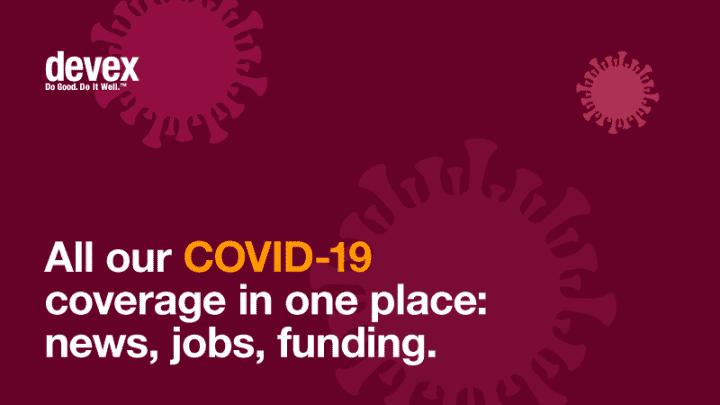
Wherever you live, you're probably looking forward to seeing the back of 2020. It has been a year of unspeakable tragedy on a global scale. Almost 80 million people have been infected worldwide since the beginning of COVID-19, claiming 1.7 million lives, and the toll keeps rising. In many countries, this was exacerbated by growing insecurity, inequality, and civil unrest.
It is perhaps no wonder, then, that we are not all optimistic about the coming year. Australia, the United States, and Canada were among the countries with the highest proportion of Google searches including the terms “2021” and “fear.”
Yet, it might be time to allay your concerns. Here are three reasons why:
1. In 2021, COVID-19 vaccines will come to almost every nation
Earlier this month, the United Kingdom became the first Western nation to roll out a COVID-19 vaccine. This was a feat of remarkable human ingenuity and global solidarity.
This is the fastest we have ever created a vaccine. Less than three months after the COVID-19 genetic sequence was published, four vaccine candidates were ready to go to human trials. The previous record was four years to develop a mumps vaccine in the 1960s.
With more than 200 vaccine candidates under development, the future looks promising. Eleven projects are in their final testing phase, and four candidates have already demonstrated spectacular results, with some boasting efficacy rates above 90%.
And the good news doesn’t stop there. In an unprecedented move, 189 economies — virtually the entire world — have signed up to COVAX, a breakthrough mechanism led by Gavi, the Vaccine Alliance, and other international bodies. The aim is to bring 2 billion doses of the new vaccines to the people who need it most, including in the world’s lowest-income nations.
The coming year will certainly not solve all of the world’s problems. But 2020 has proven the resilience and ingenuity of our human collective.
—2. In 2021, multilateralism will be back on the world stage
In addition to its devastating human toll, the COVID-19 pandemic has wiped out as many jobs as were created since the Great Recession, with global gross domestic product estimated to have fallen by 4.2%, according to the Organisation for Economic Co-operation and Development. The crisis is also accelerating trends, for better or for worse, such as the digitalization of economies and risks exacerbating preexisting inequalities. It has brought into the spotlight — again! — the tight interdependence of our economies.
Those challenges underscored the need for coordinated and collective policy responses in an interconnected global economy — and, by contrast, the impasse of unilateral, inward-looking, and beggar-thy-neighbor policies.
The outcome of this year’s G-20 meeting of leading economies is a silver lining in this regard, delivering a powerful fiscal response of around $11 trillion to the crisis. Its Debt Service Suspension Initiative will mitigate the impact of the crisis on lowest-income countries. The Leaders’ Summit in November conveyed a unified and robust position on climate change.
Get development's most important headlines in your inbox every day.
Thanks for subscribing!
This is hopefully only a first step. Next year, multilateralism will be bolstered by a new U.S. administration that wants to put “diplomacy first” and will rejoin the Paris climate agreement. The U.K. and Italy — presidents of the G-7 and G-20, respectively — will co-chair COP26, the 2021 United Nations Climate Change Conference, while the European Union and China are both pledging to be climate-neutral by midcentury. Rebooting multilateralism will not be easy, but if there is a will, there will certainly be a way.
3. In 2021, fake news will finally fall flat
In an age where fake, anti-scientific “facts” seem to have invaded every screen, it might seem as though so-called anti-vaxxers, climate change deniers, and flat Earth conspiracists have won the debate. But this may be about to change. The Covid19 Infodemics Observatory, which tracks misinformation on the pandemic, noted that as the disease started spreading, thousands of unverified Twitter accounts began to post fake news about the vaccine — but failed to attract followers.
After looking at 519 million tweets on the topic at the global level, the observatory concluded that more than 71% could be classified as sharing reliable news. Bots and trolls may still be operating in full swing, but it is just possible that the world has started to ignore them.
Most major mainstream news outlets have also started to tackle fake news and offer fact-checking services on their platforms. Twitter has introduced labels that identify potentially harmful or misleading messages, which drove a 29% decrease in quote tweets of such content involving the U.S. election. The Partnership in Statistics for Development in the 21st Century, or PARIS21, and other organizations have started initiatives to build people’s trust in data.
In fact, social media could very much help science fight back in 2021. A new collaboration called Team Halo will enable scientists working on COVID-19 vaccines to engage with the public and share videos on these platforms to explain their research. Launched a few weeks ago, the #TeamHalo hashtag has already gone viral on TikTok.
Antonio Gramsci famously said, “I'm a pessimist because of intelligence, but an optimist because of will”. The coming year will certainly not solve all of the world’s problems. But 2020 has proven the resilience and ingenuity of our human collective. There is no mountain too high, no challenge that we can’t address, including the ones that we create for ourselves.

Printing articles to share with others is a breach of our terms and conditions and copyright policy. Please use the sharing options on the left side of the article. Devex Pro subscribers may share up to 10 articles per month using the Pro share tool ( ).
"Opinion" - Google News
December 24, 2020 at 06:41AM
https://ift.tt/3nOiOC1
Opinion: Next year will be better — here are three reasons why - Devex
"Opinion" - Google News
https://ift.tt/2FkSo6m
Shoes Man Tutorial
Pos News Update
Meme Update
Korean Entertainment News
Japan News Update
No comments:
Post a Comment